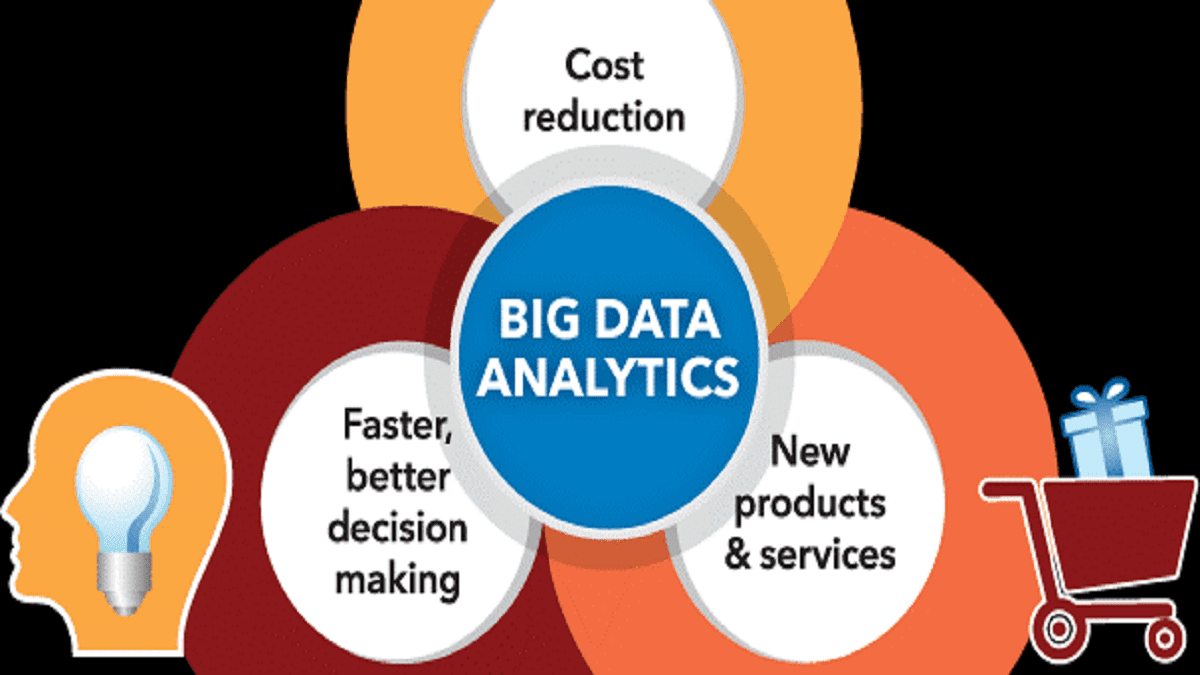Understanding the value of making data-driven decisions to obtain a competitive advantage is necessary in today’s world. Big data and sophisticated analytics are essential for streamlining business operations, boosting output, cutting expenses, and improving customer satisfaction. However, handling enormous amounts of data, a wide variety of data kinds, and the necessary technology and expertise may be daunting for organizations.
This blog offers a summary of the main big data services to assist you in choosing the best options for your requirements. There are alternatives to meet your needs, whether you want to develop data pipelines, acquire real-time insights, use machine learning, or visualize data. Big data services allow you to focus more on discovering the insights that will define your company’s future than on maintaining infrastructure. Continue reading to discover how these cutting-edge services alter how businesses manage, store, analyze, and extract value from data.
Understanding Big Data Services
Big Data services provide actionable insights from huge volumes of data to enable data-driven decision-making. Large volumes of data are analyzed through big data analytics to find hidden patterns, correlations, and other insights. Big Data can be analyzed by businesses to understand their customers better, streamline operations, cut costs, and gain a competitive advantage using advanced analytics techniques like machine learning and predictive modeling.
Big data services often require gathering, organizing, and analyzing data from numerous sources to generate insights that guide important business decisions. Big Data’s insights can result in breakthroughs that reshape sectors and even whole businesses. By utilizing Big Data analytics, businesses can improve customer experiences, optimize operations, enhance products and services, and ultimately increase revenue and profitability.
Top Providers of Big Data Services
Several major providers offer big data services to help you implement solutions. Some of the top providers are:
Amazon Elastic MapReduce (EMR), Amazon Kinesis for real-time data streaming, Amazon Redshift for data warehousing, and Amazon SageMaker for machine learning are just a few of the big data services provided by Amazon Web Services (AWS). AWS is a popular and fully managed option.
Microsoft Azure also provides robust big data services, including Azure HDInsight for data processing, Azure Stream Analytics for real-time data streaming, Azure Synapse Analytics for data warehousing, and Azure Machine Learning for machine learning. Like AWS, Azure is a fully managed platform.
Google BigQuery for data warehousing, Google Cloud Dataflow for data processing, Google Pub/Sub for real-time data streaming, and Google Cloud AI for machine learning are just a few of the big data services that Google Cloud Platform (GCP) offers. GCP is also fully managed.
IBM Cloud Pak for Data offers data warehousing, integration, virtualization, and governance capabilities. IBM Watson Studio provides tools for machine learning and AI.
Future Trends in Big Data Services
As big data continues to shape business and society, several emerging technologies promise to expand data capabilities:
Edge computing will push data storage and computation to the “edge” of networks, closer to the IoT devices and systems generating data. By processing data locally, edge computing can reduce latency, bandwidth usage, and security risks.
Quantum computing applies the properties of quantum mechanics to process information in new ways. While still in the early stages, quantum computers could someday analyze huge datasets far beyond the capabilities of today’s systems. Quantum machine learning may lead to more accurate predictions and insights.
Ethical considerations around data use and privacy will shape big data practices. Companies must follow data governance principles to collect, store, and apply personal information responsibly. Explainable AI can help address concerns about algorithmic bias and lack of transparency in data-driven automated systems.
The future of big data looks bright, but responsible stewardship of data and emerging technologies will be key to realizing the benefits while mitigating the risks. With prudent management and an eye toward ethics, big data can transform business and society over the decades.
Benefits of Implementing Big Data Services

Implementing Big Data services requires an investment, but the benefits to organizations are substantial and long-lasting. Tapping into vast data resources and applying analytics at scale can transform how organizations operate and create value. Implementing Big Data, the organizations have several advantages like:
-
Improved decision-making
Analyzing huge datasets enables better-informed business decisions based on facts and patterns rather than intuition. Organizations can gain actionable insights to optimize key business processes.
-
Enhanced customer experience
Understanding customers through their interactions and behaviors across channels allows organizations to provide personalized experiences. Targeted recommendations and customized products can increase customer satisfaction and loyalty.
-
Cost savings
Big Data analytics helps identify areas of waste and inefficiency, enabling cost reductions. Resources can be optimized by predicting demand and usage. Fraud detection also minimizes loss.
-
Competitive advantage
Data-driven organizations that can discover valuable insights and innovate faster gain a competitive edge. They can uncover new opportunities, anticipate challenges, and make strategic data-based choices to improve products, services, and business models.
Specific Use Cases
In summary, big data analytics and services have significant potential to optimize key business functions, uncover new opportunities, and gain a competitive advantage across industries. The use cases for big data continue to expand as new tools, techniques, and technology emerge.
-
Predictive analytics
Analyzing massive data sets to find patterns, forecast outcomes, and spot trends. This is useful for forecasting sales, predicting customer churn, etc.
-
Personalization
Using insights from analyzing customer data to tailor products, services, and messaging to individual customers. Recommendation engines are a prime example.
-
Fraud detection
Detecting fraudulent transactions, accounts, insurance claims, etc., by identifying anomalies in large data sets.
-
Optimizing operations
Improving business processes and operational efficiency by analyzing data on key performance indicators, costs, risks, etc. This could include optimizing supply chain management, improving energy efficiency, etc.
-
Gaining business insights
Uncovering key insights about customers, products, markets, and growth opportunities by analyzing data from all business areas. These insights can drive product development, marketing strategies, and other key business decisions.
-
Enhancing security
Analyzing network activity, user behavior, and other data to detect cyber threats, data breaches, and other security risks as early as possible. Security information and event management (SIEM) tools rely heavily on big data.
Conclusion
As you now know, big data services provide enormous opportunities for businesses to gather insightful information and influence important business choices. To realize its full potential, big data must overcome several obstacles. You may create a deliberate big data strategy, and a solid data architecture, implement efficient data governance policies, select the appropriate big data tools and services, and promote a data-driven culture by following the suggestions and best practices covered here.







